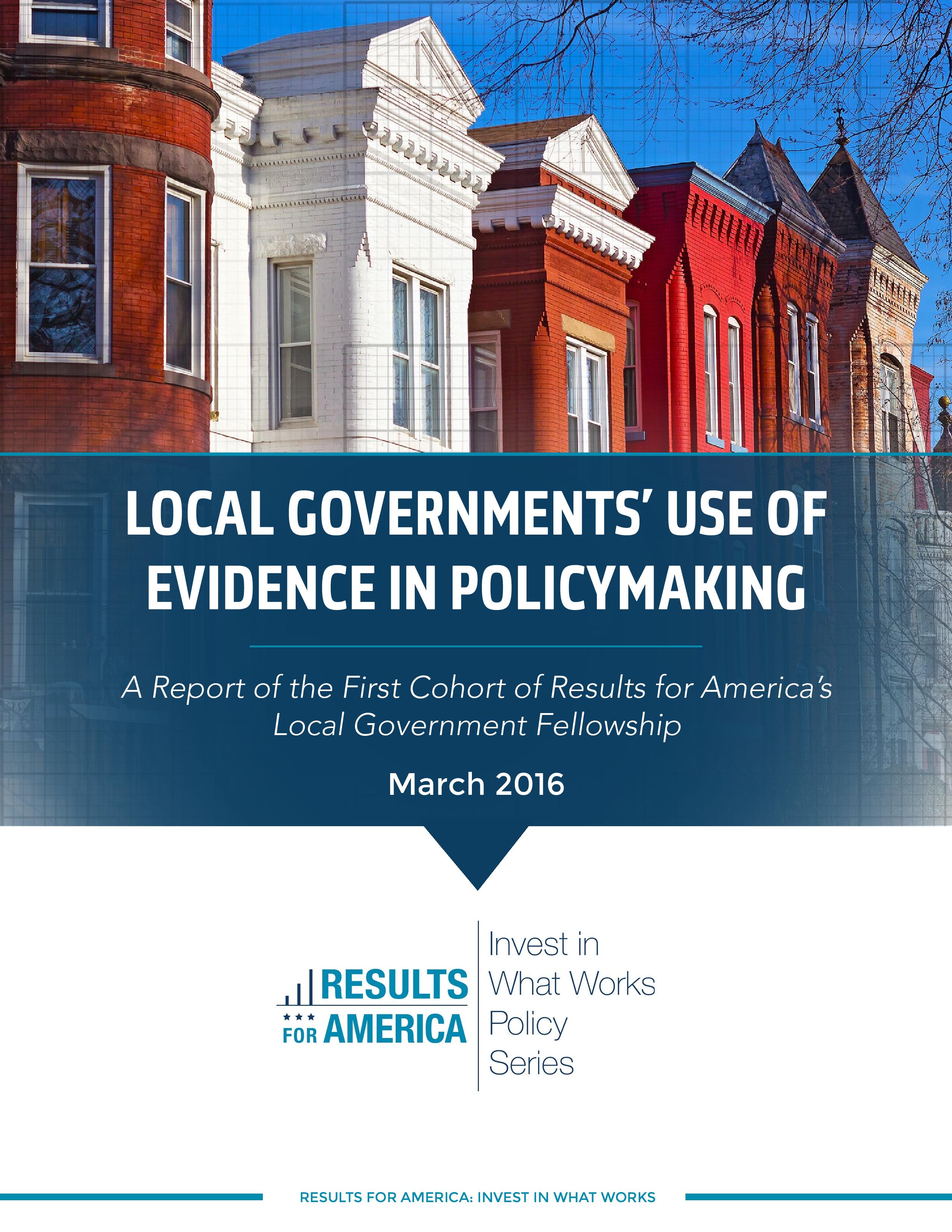
Photo: Maia4020
New report reveals how data can drive better policymaking
05 April 2016
by Jonathan Andrews
By Maia Jachimowicz*
What if we could create a national network of senior local government leaders committed to using data and evidence to improve results for their communities? That was the driving question behind the development last year of a local government fellowship programme by Results for America (RFA). The ultimate goal of the programme was to grow the use of data and evidence in policy decisions by helping local leaders demonstrate evidence-based policy ‘wins’ within their city halls.
While more information exists than ever before about what works to address some of America’s greatest social challenges, too often governments continue to do what they have always done without using rigorous evidence to make better policy decisions. Not surprisingly, the results are disappointingly the same.
 Inspired by a similar transformation in the federal government’s use of evidence, the first cohort of this new network of local leaders has just completed its initial phase of work–and the impact has been substantial. The results are detailed in a new report, Local Government’s Use of Evidence in Policymaking: A Report of the First Cohort of Results for America’s Local Government Fellowship, which was released at an event co-sponsored by RFA and the William T. Grant Foundation about the importance of building capacity for evidence-based policies.
Inspired by a similar transformation in the federal government’s use of evidence, the first cohort of this new network of local leaders has just completed its initial phase of work–and the impact has been substantial. The results are detailed in a new report, Local Government’s Use of Evidence in Policymaking: A Report of the First Cohort of Results for America’s Local Government Fellowship, which was released at an event co-sponsored by RFA and the William T. Grant Foundation about the importance of building capacity for evidence-based policies.
Over the course of the past 18 months, the Local Government Fellows participated in five multi-day convenings, learned from national experts, and collaborated with one another about strategies for using data and evidence in decision-making. Fellows also assessed their own city’s progress toward being ‘evidence-based’ and designed a city-specific project plan for how to accelerate their city’s use data and evidence.
As a result of this investment, each of the 11 cities and counties have increased their city’s use of data and evidence to make better decisions and better serve their residents.
Atlanta established clear strategic priorities and associated performance metrics for all city operating departments. And, for the first time, the city codified metrics and strategic goals to set a clear vision of success citywide. Atlanta credits their commitment to performance management with a 20 percent improvement in service delivery in the city’s Watershed Management department and over 1,000 hours of police officer time re-allocated to street-level policing. New Orleans created a predictive analytics team, using data to inform how government can improve operations. And I was fortunate to serve as Philadelphia’s Fellow, where we launched a best practices website and initiated a research partnership to study the impact of the city-funded youth summer jobs programme. Other cities and counties reported similar progress in building and using evidence in policies and programmes.
Together, the Fellows come from jurisdictions that collectively represent nearly 19 million people and almost US$110 billion in annual local government spending. They were selected following interviews with 25 top local leaders to create baseline criteria and highlight the promise of using data and evidence in local policymaking regardless of population size or diversity, geographic location, governance structure or political affiliation. They represent the cities and counties of: Albuquerque, New Mexico; Atlanta, Georgia; Baltimore, Maryland; Los Angeles, California; Louisville, Kentucky; New Orleans, Louisiana; New York City, New York; Philadelphia, Pennsylvania; Salt Lake County, Utah; Seattle, Washington; and Tulsa, Oklahoma.
In addition to the city-specific accomplishments, each Fellow has pledged to continue to make the use of evidence and data a priority in their work. All 11 mayors–the cities’ chief executives–have also committed publicly to supporting the use of data and evidence in their city work. The result is a growing, influential national network of city leaders and active champions in the evidence-based policy movement who are learning from each other and achieving success. If we are serious about making dramatic progress to social challenges, we need to continue to foster our commitment to evidence-based policies and programmes at all levels of government.
Read RFA’s report to learn more about the accomplishments of the Local Government Fellows.
*Maia Jachimowicz is the Vice President for Evidence-Based Policy Implementation for Results for America and previously served as Director of Policy in the Office of the Mayor for the City of Philadelphia, where she directed the research, design and execution of public policy across a range of issues including workforce development, violence prevention and impact investing.











